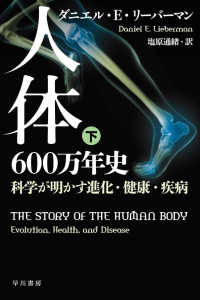Full Description
COVID-19 sparked the largest global crisis of the 21st century, extending well beyond public health. For some, the impact was swift and dramatic, with the pandemic pushing tens of millions into poverty and creating extreme food insecurity; for others, the transformations are still bubbling under the surface. Efforts to arrest the spread of COVID-19 entailed far-reaching forms of government intervention and the extensive use of new technologies. Questions thus remain as to whether the societal changes brought about by COVID-19 will endure in the post-pandemic period. The return of geopolitics, along with the war in Ukraine and tensions in Asia, have further complexified an already complex global situation.
Since March 2020, there has been an explosion of analyses about the short-term impacts and future global consequences of COVID-19. Parallels to the 1930s collapse of Europe have been made, as recounted by Stefan Zweig in his famous memoir, The World of Yesterday. While most commentators are pessimistic, some are looking for positive change. Faced with this unprecedented crisis, we have been propelled to think about how, in the "next world," we can strengthen economic prosperity, social justice, the environment, gender relations, public health, and political institutions—or at least ensure that these features of our world do not continue to deteriorate.
In The Afterworld, 50 professors from four Montreal universities, among the foremost experts in their fields, propose progressive, pragmatic, and social science-based ideas with the potential to improve international cooperation, security, human rights, and sustainable prosperity beyond the pandemic.
Contents
FOREWORD
Louise Fréchette
FOREWORD
Preparing for the Post‑COVID World
Stéphane Dion
Acknowledgements
INTRODUCTION
The Afterworld
Frédéric Mérand and Jennifer Welsh
CHAPTER 1
Global Governance in the Wake of COVID-19
Jennifer Welsh, Frédéric Mérand, T.V. Paul, Vincent Pouliot, and Jean‑Philippe Thérien
CHAPTER 2
Global Health
Laurence Monnais, Ryoa Chung, Pierre Marie David, and Thomas Druetz
CHAPTER 3
The Global Economy
Peter Dietsch, Vincent Arel-Bundock, Mark R. Brawley, Allison Christians, Juliet Johnson, Krzysztof Pelc, and Ari Van Assche
CHAPTER 4
Information Technology
Karim Benyekhlef, Anthony Amicelle, Nicholas King, and Samuel Tanner
CHAPTER 5
Environment and Climate Change
Pierre-Olivier Pineau, Maya Jegen, Erick Lachapelle, Justin Leroux, and Hamish van der Ven
CHAPTER 6
Peace and Security
Theodore McLauchlin, Sarah-Myriam Martin-Brûlé, María Martín de Almagro Iniesta, Lee Seymour, and Marie-Joëlle Zahar
CHAPTER 7
Canada-U.S. Relations
Daniel Béland, Philippe Fournier, François Furstenberg, and Pierre Martin
CHAPTER 8
Human Rights
Cynthia Milton, Pearl Eliadis, Pablo Gilabert, Frédéric Mégret, and René Provost
CHAPTER 9
COVID-19 and Inequality in the Developing World
Erik Martinez Kuhonta, Dominique Caouette, Timothy Hodges, Christian Novak, and Maïka Sondarjee, with the collaboration of Sonia Laszlo
CHAPTER 10
Migration and Citizenship
Magdalena Dembińska, Valérie Amiraux, François Crépeau, Alain Gagnon, Mireille Paquet, Thomas Soehl, and Luna Vives
CONCLUSION
Jennifer Welsh and Frédéric Mérand
List of Contributors








